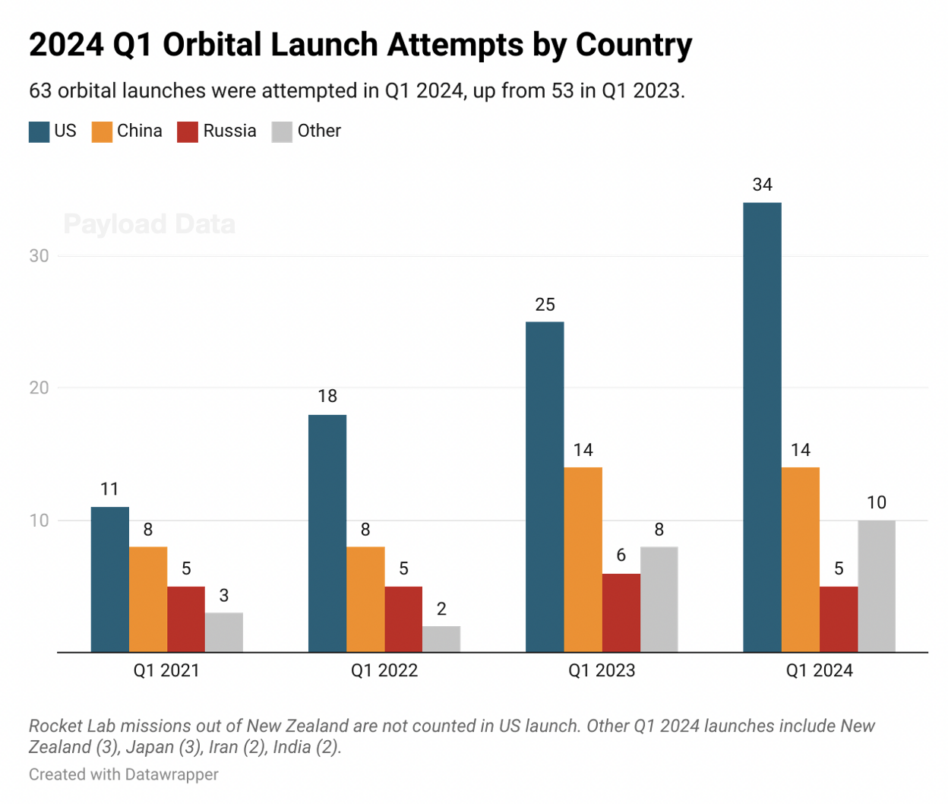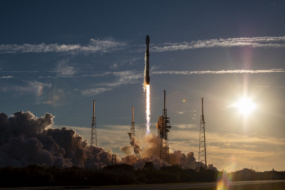There were 63 orbital launch attempts worldwide in the first quarter of 2024—10 more than the same time last year—and more than half of the record-breaking quarter can be attributed to SpaceX.
US Q1 launch: SpaceX accounted for 32 of the 34 US orbital launch attempts in Q1. One ULA Vulcan launch and one Rocket Lab Electron launch out of Wallops rounded out the remaining total. (Rocket Lab flights out of New Zealand are not counted in US launch).
SpaceX flew 31 Falcon missions and one Starship mission in Q1. The company’s launch attempts increased by 11 flights in Q1 2024 vs. Q1 2023.
- Falcon launches by month: January (10), February (9), March (12).
- The launch giant aims to hit 148 Falcon launches this year, which requires SpaceX to reach a ~12 launch per month rate.
- Falcon’s Q1 mission breakdown: 1 DoD, 1 Transporter, 2 science, 3 customer satcom, 4 ISS missions, 20 Starlink.
ULA flew Vulcan on a flawless maiden flight in January, an impressive feat considering 47% of maiden launches suffer a significant anomaly, according to ESA chief Josef Aschbacher. The company is circling a fall date for flight two as it awaits flight readiness clearance for its payload, Sierra Space’s Dream Chaser.
European launch: Europe’s planned summer Ariane 6 launch can’t come soon enough as the region saw zero launch attempts in the quarter. Ariane 6 is on the pad at Europe’s spaceport in Kourou, French Guiana.
Japanese launch: Japan saw three launch attempts in Q1: H-2A (1), H3 (1), and Space One’s Kairos (1).
- Japan’s H3 rocket reached orbit for the first time following its failed maiden flight last year. JAXA has spent 10 years and ~$1.5B developing H3, a successor to the H-2A rocket.
- Japanese startup Space One launched its Kairos rocket on its maiden launch, but the vehicle went ka-boom shortly after liftoff—cue the aforementioned Josef Aschbacher quote.
China launch: China’s Q1 launch was flat year-over-year at 14 flights. Its Long March 2 vehicle led the way with four missions. In January, Chinese startup Orienspace launched its Gravity-1 rocket off a barge at sea on its maiden flight.




